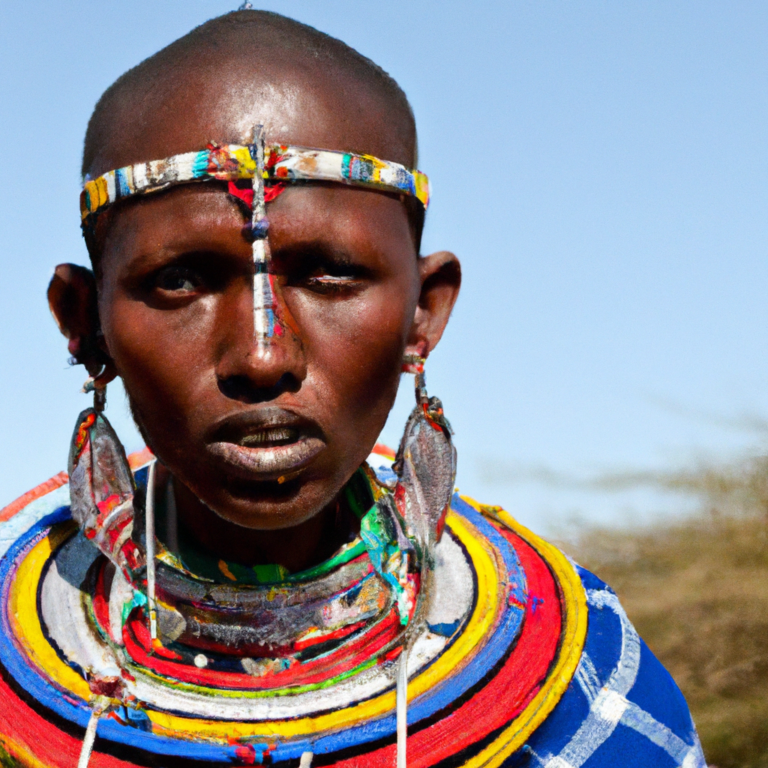Can You Take Part In Community Development Projects In Kenya?
Are you looking for an opportunity to make a positive impact in the world? If so, then community development projects in Kenya might just be the perfect opportunity for you. From teaching English to children, to building sustainable infrastructure, there are countless ways to get involved and contribute to the local communities in Kenya. Not only will you be able to make a difference, but you will also have the chance to immerse yourself in the rich culture and breathtaking landscapes of this beautiful East African country. So, what are you waiting for? Pack your bags and get ready to embark on a life-changing adventure in Kenya!
Overview of Community Development Projects in Kenya
Kenya, a vibrant country in East Africa, is known for its rich culture, diverse landscapes, and warm-hearted people. In recent years, community development projects have gained significant momentum in Kenya, aiming to address social, economic, and environmental challenges faced by local communities. These projects span various sectors such as education, healthcare, infrastructure, agriculture, and entrepreneurship. By actively participating in community development projects in Kenya, you have the opportunity to contribute to positive change while immersing yourself in the local culture.
Types of Community Development Projects
Community development projects in Kenya encompass a wide range of initiatives. Some common types of projects include:
Education
Education plays a vital role in transforming communities and empowering individuals. By participating in education-focused community development projects, you can help improve access to quality education, enhance school infrastructure, provide educational resources, and support teacher training programs.
Healthcare
Improving healthcare facilities and access to medical services is another essential aspect of community development in Kenya. You can contribute to healthcare projects by assisting medical professionals, organizing health outreach programs, promoting hygiene and sanitation practices, and raising awareness about prevalent health issues.
Infrastructure
Community development projects also involve initiatives to enhance infrastructure in rural areas. This may include constructing or renovating schools, clinics, community centers, water supply systems, roads, and bridges. By participating in infrastructure projects, you can contribute to improving the quality of life for local communities.
Agriculture and Entrepreneurship
Agriculture is a vital sector for Kenyan communities, particularly in rural areas. Community development projects focused on agriculture aim to promote sustainable farming practices, provide training and resources, and support entrepreneurship opportunities. By participating in these projects, you can help local farmers increase their productivity and income.
Importance of Community Development Projects in Kenya
Community development projects are of paramount importance in Kenya as they address pressing issues and contribute to sustainable development. Some key reasons why these projects matter include:
Poverty Alleviation
Kenya has a significant poverty rate, especially in rural areas. Community development projects play a crucial role in reducing poverty by providing education, healthcare, vocational training, and livelihood opportunities to marginalized communities. These projects empower individuals to break the cycle of poverty and create a better future for themselves and their families.
Capacity Building
Community development initiatives focus on capacity building, which involves equipping individuals and communities with the skills, knowledge, and resources they need to thrive. By improving access to education, healthcare, and skill development programs, these projects enable communities to become self-sufficient and resilient.
Empowerment and Social Inclusion
Community development projects prioritize empowering marginalized groups, including women, youth, and people with disabilities. By creating equal opportunities and fostering social inclusion, these projects promote sustainable development and ensure that no one is left behind.
Environmental Conservation
Many community development projects in Kenya incorporate environmental conservation efforts. By promoting sustainable agricultural practices, reforestation, waste management, and clean energy initiatives, these projects contribute to preserving Kenya’s natural beauty and biodiversity for future generations.
Government and Non-Governmental Agencies Involved in Community Development
Community development projects in Kenya receive support and collaboration from both government and non-governmental agencies. Government agencies, such as the Ministry of Education, Ministry of Health, and Ministry of Agriculture, provide funding, policies, and regulatory frameworks to facilitate community development initiatives. Non-governmental organizations (NGOs) and international development agencies, such as the United Nations Development Programme (UNDP) and World Vision, also play a crucial role in implementing and coordinating community development projects. These agencies work closely with local communities and volunteers to ensure the success and sustainability of these initiatives.
Ways to Get Involved in Community Development Projects in Kenya
If you’re passionate about making a difference and want to get involved in community development projects in Kenya, there are several avenues to explore:
Volunteering Opportunities
Volunteering is an excellent way to actively participate in community development projects. Numerous organizations offer volunteering programs in Kenya, providing you with the opportunity to contribute your time, skills, and energy in various areas such as education, healthcare, construction, and environmental conservation. By volunteering, you can directly engage with local communities and make a tangible impact.
Internship Programs
Internship programs provide a more structured and in-depth experience in community development projects. These programs are typically offered by NGOs, international organizations, and governmental agencies. By joining an internship program, you can gain valuable hands-on experience, develop specific skills, and learn about the complexities of community development efforts in Kenya.
Funding and Donations
Financial contributions are a significant support mechanism for community development projects in Kenya. Many organizations rely on donations and funding to carry out their initiatives successfully. By making financial contributions, you can ensure the continuity and expansion of these projects, enabling them to reach more communities and make a greater impact.
Capacity Building and Skill Development Programs
Community development projects often include capacity building and skill development programs. These programs aim to enhance the capabilities of individuals and communities in various areas such as entrepreneurship, healthcare, agriculture, and education. By participating in these programs, you can share your expertise, facilitate training, and empower individuals with the necessary skills to create lasting change.
Challenges and Considerations for Participation in Community Development Projects in Kenya
While participating in community development projects in Kenya can be incredibly rewarding, it’s essential to be aware of the challenges and considerations involved:
Cultural Sensitivity and Understanding
Kenya has a rich and diverse culture, with various ethnic groups and traditions. When participating in community development projects, it’s crucial to approach the culture with respect and sensitivity. Taking the time to understand local customs, values, and practices will help you build meaningful relationships with the community.
Language Barriers
English and Swahili are the official languages in Kenya; however, there are hundreds of local dialects. Language barriers may arise, particularly in rural areas where English proficiency may be limited. Learning basic Swahili phrases can greatly enhance your ability to communicate and connect with the local community.
Logistical Challenges
Community development projects in Kenya often take place in rural or remote areas, which can present logistical challenges. Lack of infrastructure, limited resources, and transportation difficulties may arise. Flexibility, adaptability, and problem-solving skills are essential when facing these challenges.
Health and Safety Precautions
When participating in community development projects, it’s important to prioritize your health and safety. This may involve taking necessary vaccinations, following hygiene practices, and being aware of potential health risks in specific regions. Staying informed and adhering to recommended guidelines will ensure a safe and enjoyable experience.
Benefits and Impact of Participating in Community Development Projects in Kenya
Participating in community development projects in Kenya can have a profound impact, both on the communities you serve and on your personal growth as an individual. Some key benefits and impacts of getting involved include:
Personal Growth and Cultural Exchange
Engaging in community development projects allows for personal growth and cultural exchange. By immersing yourself in the local culture, traditions, and customs, you gain a deeper understanding of Kenya’s diverse society. This cross-cultural experience broadens your perspective, enhances empathy, and fosters personal development.
Creating Sustainable Change
Community development projects in Kenya aspire to create sustainable change by addressing the root causes of social, economic, and environmental challenges. By actively participating in these projects, you contribute to long-term impact, empowering communities to become self-sustaining and resilient.
Empowering Local Communities
Participating in community development projects empowers local communities by providing them with the necessary resources, skills, and opportunities to improve their quality of life. By working collaboratively with community members, you enable them to take ownership of their development and lead the way towards positive change.
Building an International Network
Engaging in community development projects in Kenya introduces you to volunteers, professionals, and organizations from diverse backgrounds and countries. Building an international network allows for exchange of ideas, collaboration, and future partnerships, broadening your horizons and creating opportunities for future involvement in community development initiatives worldwide.
Choosing a Community Development Project in Kenya
When choosing a community development project in Kenya, consider the following factors:
Identifying Your Interests and Skills
Reflect on your interests, skills, and areas of expertise. Determine the sectors or causes that resonate with you the most. Whether it’s education, healthcare, agriculture, or infrastructure, selecting a project aligned with your passion ensures meaningful engagement and effective contribution.
Researching Project Organizations
Thoroughly research and evaluate project organizations before getting involved. Look for organizations with a proven track record, transparent operations, and positive impact. Online reviews, recommendations, and testimonials can provide valuable insights into their credibility and effectiveness.
Evaluating Project Sustainability
Assess the long-term sustainability of the project. Consider whether the organization has a comprehensive plan for maintaining and expanding their initiatives beyond immediate impacts. Sustainability ensures that your contributions have a lasting effect on the community.
Steps for Getting Involved in Community Development Projects in Kenya
To get involved in community development projects in Kenya, follow these steps:
Identify Potential Projects and Organizations
Research available projects and organizations based on your interests and goals. Consider factors such as location, duration, and the specific focus areas of the projects. Compile a list of potential projects that align with your preferences.
Contact and Communicate with Project Coordinators
Reach out to project coordinators or organization representatives to inquire about the projects. Ask questions about their objectives, activities, and volunteer expectations. This communication will help you gain a deeper understanding of the projects and determine if they are the right fit for you.
Plan and Prepare for Your Visit
If you decide to participate in a community development project, carefully plan and prepare for your visit. This may involve obtaining necessary visas, vaccinations, and travel insurance. Familiarize yourself with local customs, prepare necessary materials or equipment, and ensure you have a clear understanding of your role and responsibilities.
Reflect and Share Your Experience
Once your participation in the community development project concludes, take time to reflect on your experience. Consider the impact you made, the lessons learned, and the connections you formed. Share your experiences with friends, family, and the wider community, raising awareness about the importance of community development and encouraging others to get involved.
Tips for a Successful Participation in Community Development Projects in Kenya
To ensure a successful and impactful experience in community development projects in Kenya, keep the following tips in mind:
Learn Basic Swahili Phrases
Although English is widely spoken in Kenya, learning basic Swahili phrases can greatly enhance your ability to communicate and connect with the local community. The effort to speak the local language is appreciated and fosters stronger relationships.
Respect Local Customs and Traditions
Demonstrate respect for local customs and traditions at all times. Take the time to understand and abide by cultural norms, dress appropriately, and ask for guidance if uncertain about appropriate behavior. Respectful engagement promotes trust and collaboration.
Stay Flexible and Open-Minded
Community development projects in Kenya may not always go as planned. It’s important to stay flexible and adapt to changing circumstances. Embrace cultural differences, navigate challenges with a positive mindset, and be open to learning from the local community.
Be Prepared for Challenges
Participating in community development projects can be physically and emotionally challenging. Be prepared to face adversity, work in resource-limited environments, and overcome unexpected obstacles. A positive attitude, resilience, and problem-solving skills will serve you well in these situations.
Impact Evaluation and Long-Term Engagement in Community Development Projects
To ensure the ongoing success of community development projects in Kenya, impact evaluation and long-term engagement are essential:
Monitoring and Evaluating Project Impact
Regular monitoring and evaluation of project impact are crucial to measure the effectiveness and efficiency of community development initiatives. This involves assessing the outcomes, identifying areas for improvement, and implementing necessary adjustments to maximize positive change.
Continuing Support and Collaboration
Successful community development projects require continued support and collaboration. Stay connected with project organizations, volunteers, and local communities to offer ongoing assistance. Collaborate on future projects, share resources, and create a network of support to sustain the momentum and impact.
Creating Lasting Connections with Kenyan Communities
Building lasting connections with Kenyan communities is vital for sustainable community development. Foster relationships, develop mutual trust and respect, and engage in ongoing communication. By creating lasting connections, you contribute to a sense of ownership and empowerment within the communities you serve.
Conclusion
Participating in community development projects in Kenya provides a unique opportunity to make a positive impact, both on local communities and on your personal growth. By volunteering, interning, or supporting these initiatives, you contribute to poverty alleviation, capacity building, empowerment, and environmental conservation. Through cross-cultural exchange and collaboration, you create lasting connections and contribute to sustainable change. Start your journey today and experience the power of participation in community development projects in Kenya.
FAQs about Taking Part in Community Development Projects in Kenya
Can I participate in a community development project in Kenya even if I don’t have previous experience?
Yes, community development projects in Kenya welcome participants of all levels of experience. While prior experience may be beneficial, enthusiasm and a willingness to learn are equally important. Project coordinators and organizations provide necessary training and guidance to ensure your successful participation.
What kind of skills are typically needed for community development projects in Kenya?
Community development projects in Kenya require a diverse range of skills. Commonly sought skills include teaching, healthcare, construction, project management, communication, and leadership. However, every project is unique, and specific skills may vary based on the project’s focus area.
How long do community development projects in Kenya usually last?
The duration of community development projects in Kenya varies depending on the organization, project, and your availability. Projects can range from weeks to several months. It is important to consider the time commitment and duration when choosing a project that aligns with your schedule.
Are there age restrictions for participating in community development projects in Kenya?
Age restrictions for community development projects in Kenya may vary based on the project and organization. While many projects welcome participants of all ages, some projects may have specific age requirements. It is best to inquire with project coordinators or organizations directly regarding any age restrictions.







